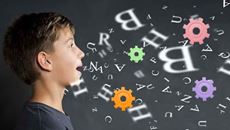- Delivery Method Online
- Professional Certificate
- 24hrs Suggested Study Time
- 3 Months Access
- Tutor Support
- Study On Any Device
- 9236 Students
Teaching Children to Read

A learning specialist shows you how to raise a successful reader and writer.
Take this opportunity to find out how children really learn to read and write. Explore current research that cuts through the media messages about reading wars and the right way to teach children. Learn by reading stories about children, doing interactive assignments, and exploring the latest in parent and childcare information. You will see everyday children's play with a new eye as you understand how play can connect to literacy.
You'll learn how a child becomes literate from the moment of birth. First, you'll investigate the many things a child's growing mind must do to make sense of the written word and create writing. From there, you'll explore the development of reading and writing from infancy to the early school years. You'll know what problems to look for and how to assist a struggling reader. You will see how you can boost literacy growth during daily routines and child's play.
Gain confidence in your ability to guide a child's literacy development, and take pleasure in seeing how even the littlest events can lead to really big steps in reading and writing success.
Courses are delivered to you through expertly executed lessons, online instruction and interaction with like-minded students. Our courses are designed to deliver all of the benefits of studying in a classroom whilst giving you the flexibility to study at a time and place to suit your needs. You can access your classroom 24/7 from any device with an internet connection.
This course has a 3 month duration. You'll complete comprehensive lessons, quizzes and assignments before submitting your final exam at the end of the course to achieve your certificate. Courses must be completed within the 3 month access period.

Kt Paxton
Kt (Katie) Paxton is a certified teacher with a Master's Degree in Education focusing on Learning and Technology. She has more than 15 years of classroom experience and has been an online instructor since 2003. She also owned and managed a home da... Read more
Read Kt Paxton's ProfileFrequently Asked Questions
What people are saying about our courses
The Learning Environment
From the moment that you enrol in the Teaching Children to Read you will become an integral part of our learning community. You'll find yourself with the freedom to learn at a speed that suits you, on any device, from anywhere in the world. Achieving your career goals no longer has to mean compromising family and work commitments.
Our Values
Learn At Your Own Pace
We believe in personalised learning. That's why we provide all the tools and support you need to succeed at your own pace. With flexible learning, you'll stay motivated and retain more information. Plus, you can balance your studies with work and family commitments to make your dreams a reality.
We Won't Break The Bank
Education should be accessible to anyone who wants to learn. That's why we offer some of the most competitive prices in the industry with payments plans for just $25 per week. Investing in your future is a smart choice and doesn’t have to break the bank.
Industry-Led Courses
There's no better way to learn than from experts with years of experience in your field. That's why each of our 200+ industry-led courses are designed to give you a real-life perspective on your industry. With our expert mentors, you'll learn from people who have a wealth of knowledge and experience, and who are passionate about sharing it with you.
Get The Personal Support You Deserve
At Vibe Learning, we're real people who are dedicated to providing you with personal support every step of the way. Our industry experts are not only professional and knowledgeable but also incredibly passionate about sharing their expertise with you. With their guidance, you'll gain invaluable insights and practical knowledge to help you succeed.
Still looking?
Check out the following courses related to Teaching Children to Read:





